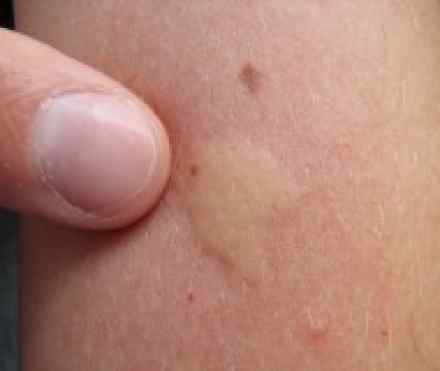
What is it?
Mosquitoes — and mosquito bites — are annoying. What's worse, mosquito bites sometimes transmit serious diseases, such as West Nile virus, malaria and dengue fever.
You're most likely to get mosquito bites at dawn or at dusk, when mosquitoes are most active. But, it's not always possible or desirable to stay indoors during those times. Fortunately, you can take steps to keep mosquitoes at bay.
However, no method is foolproof. If you do get bitten, the telltale signs and symptoms of mosquito bites — redness, swelling and itching — may not show up for up to two days after you've been bitten.
A number of treatments, such as oral antihistamines and topical lotions, can ease the itch from mosquito bites.
Symptoms
Common signs and symptoms
Typical signs and symptoms of mosquito bites include:
- Soft, initially pale bumps on your skin that can become pink or red
- Itching
The bump that results from a bite can appear immediately or may take up to two days to appear. If you're highly sensitive to mosquito bites, you may have a much larger area of itching.
Severe allergic reaction
Rarely, a serious reaction to mosquito bites might occur, which results in swelling in the throat, significant hives and wheezing. This life-threatening condition (anaphylaxis) requires immediate medical attention.
Mosquito-borne disease
Mosquitoes can transmit serious diseases such as West Nile virus, malaria, yellow fever and dengue fever. Signs and symptoms of a more serious infection may include:
- Fever
- Severe headache
- Neurological changes, such as one-sided muscle weakness
- Body aches
- Nausea
- Vomiting
- Swollen glands
- Rash
- Lethargy
- Confusion
- Sensitivity to light
Causes
Mosquito bites are caused by the bite of a female mosquito. The female mosquito feeds off your blood by piercing your skin with her mouth (proboscis). While sucking your blood, she also deposits some of her saliva into your skin. This saliva contains proteins that remain in your skin. Your immune system may then react to those proteins, resulting in the characteristic itching and bump.
Risk factors
Mosquitoes select their victims by evaluating scent, exhaled carbon dioxide and the chemicals in a person's sweat. A few factors may put you at greater risk of getting bitten. Although it's not clear why, mosquitoes are more likely to bite:
- Men
- People with type O blood
- Overweight people
In addition, mosquitoes are attracted to heat. So, wearing dark colors, which absorb heat, may attract mosquitoes.
Age can affect symptom severity
Adults may become less sensitized to mosquito bites if bitten many times throughout life. This means adults are less likely to have strong reactions to mosquito bites. Children who haven't been bitten as much are at greater risk of experiencing symptoms from a mosquito bite.
Complications
- Infected bites. If you scratch mosquito bites, any resulting sores could become infected.
- Mosquito-borne diseases. Mosquitoes can act as reservoirs of diseases such as West Nile virus, malaria, yellow fever and dengue fever. The mosquito obtains a virus by biting an infected person or animal. Then, when biting you, the mosquito can transfer that virus to you through its saliva.
- Severe allergic reaction (anaphylaxis). Although rare, a serious reaction to mosquito bites might occur, which can result in swelling in your throat, significant hives and wheezing. This requires immediate medical attention.
Diagnosis
If you have an infection at the site of your bite, your doctor can diagnose this by looking at it. If you've contracted an illness from a mosquito bite, your signs and symptoms are usually enough for your doctor to diagnose the illness, but a blood sample may sometimes be taken to confirm the diagnosis. For some complications, including meningitis or neurological changes that occur after exposure to mosquitoes, additional tests, such as a spinal fluid examination, may be needed.
References
http://www.healthline.com/health/allergies/mosquito-bite
http://www.mayoclinic.org/diseases-conditions/mosquito-bites/basics/definition/con-20032350
http://www.webmd.com/skin-problems-and-treatments/illnesses-mosquito-bites

